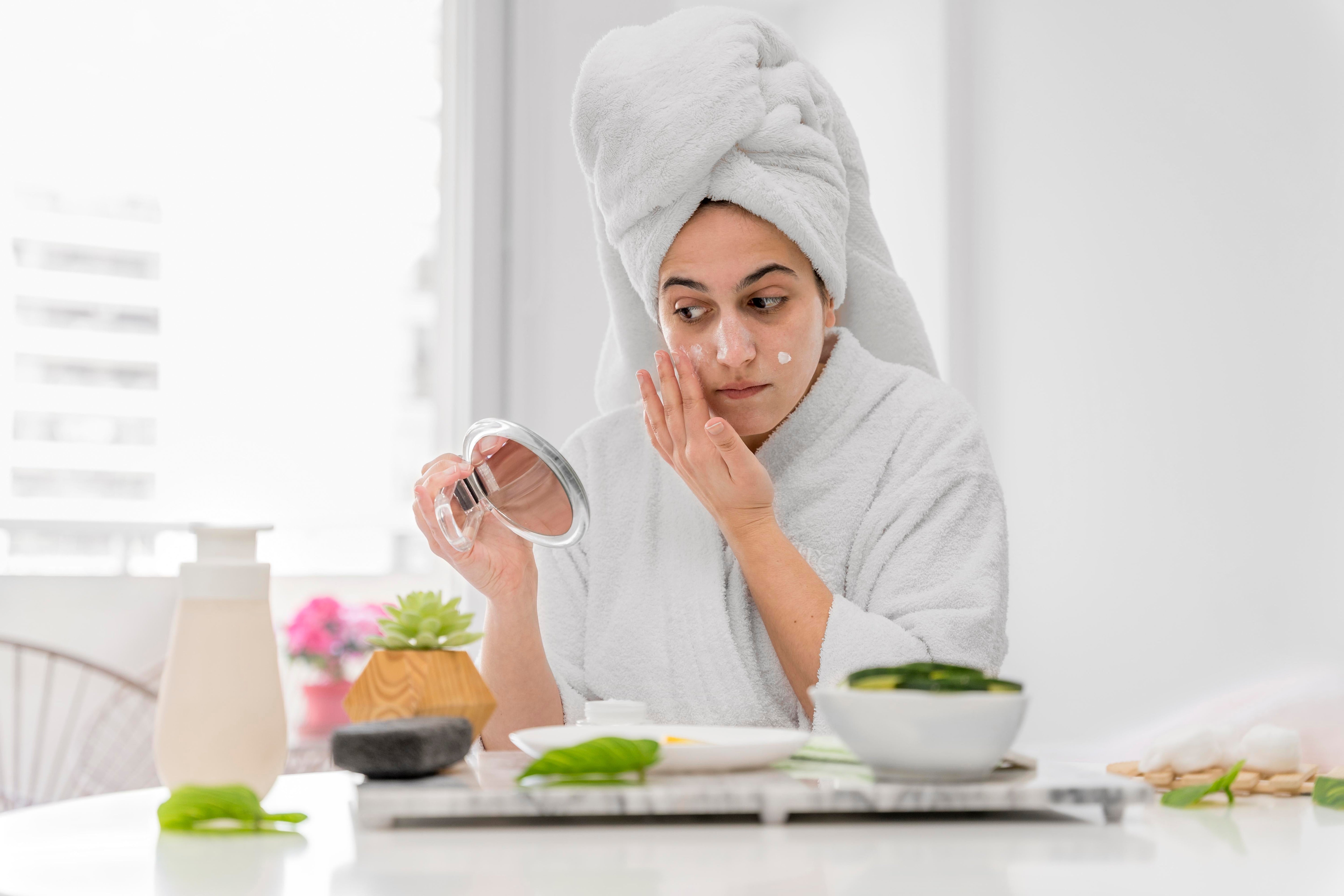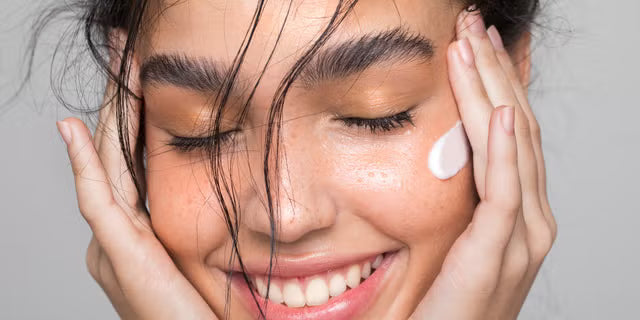
The Role of Antioxidants in Protecting Your Skin
Antioxidants are naturally occurring molecules that can protect our skin from free radicals and harmful sun damage by neutralizing their effect. It also prevents the exposure of oxidative stress, a part of our metabolic activities. Antioxidants work as a defence mechanism that protects our skin from multiple skin concerns, such as anti-ageing, acne-busting, sunburn protection, and gives a brighter-looking skin. They are present as a supplement in vitamins & minerals, also found in fruits, vegetables, and skin care products.
Free radicals are the unstable molecules that damage your skin cells; here, antioxidants play a crucial role. It donates one of its electrons to those unstable free radicals and neutralizes the free radicals, stopping them in their tracks before they can cause any damage to your healthy skin cells. Although our body produces antioxidants naturally, due to all the environmental stress that we face daily, our natural supply often isn’t enough to tackle all those invaders. That’s where there is a need to give our skin with extra boost of antioxidants through skin care products or from the food we eat.
Role of Antioxidants in Protecting Your Skin
- Get rid of free radicals: Their main function is to neutralize free radicals. These unstable molecules can cause major damage to our cells, which can lead to early aging and other skin disorders. Antioxidants essentially disarm these troublemakers, preventing them from wreaking havoc.
- Avoid danger: In doing so, they protect your skin cells. As a result, the vital components like collagen and elastin—which are necessary to keep your skin firm and supple—degrade less.
- Repair any damage: Furthermore, some antioxidants help your skin heal by repairing damage that has already occurred. Their advantages go beyond just prevention.
-
Promote collagen synthesis: Antioxidants protect and repair skin while also promoting healthier skin. They have the power to boost collagen synthesis, which makes skin smoother and plumper.
- Skin tone that gets more glowing: Along with brightening your skin tone, they might also help to even out your complexion and lessen the visibility of dark spots.
- Reduce inflammation: Finally, antioxidants are great at lowering inflammation, which makes those who are irritated or red feel calmer and more at ease.
Benefits of Antioxidants
- Reduce the symptoms of aging.
One of the most well-known benefits of antioxidants is their capacity to decrease aging signs. When our skin is constantly exposed to harmful substances like pollution, UV rays, and even our normal physiological functions, harmful molecules known as free radicals are created. Damage to healthy skin cells by these free radicals causes wrinkles, fine lines, and a loss of firmness, all of which are clear signs of aging. Antioxidants efficiently disarm these free radicals before they have a chance to cause any damage by neutralizing them. They take this action to preserve the youthful structure of your skin, which prolongs its appearance of softness and smoothness.
- Enhance the tone and texture of the skin.
Vitamins are also great for enhancing the skin's tone and texture. The characteristics of a wide variety of antioxidants can inhibit the pigment melanin, which is responsible for dark spots and uneven skin tone. Stated differently, they can help reduce existing hyperpigmentation and prevent the formation of new spots, giving the complexion a more even and glowing appearance. In addition to enhancing color, antioxidants protect skin cells and promote healthy cell turnover, giving your skin a softer, more refined texture.
- Take precautions to prevent environmental damage.
The first line of defense against the outside world is our skin, and antioxidants are crucial to helping it protect against environmental damage. Common air pollutants and the sun's strong UV rays are two examples of external aggressors that can cause oxidative stress in the skin, which can lead to inflammation, cellular damage, and collagen breakdown. Antioxidants act as a barrier by scavenging these dangerous compounds and lessening their detrimental effects. This additional layer of defense keeps your skin's barrier intact and makes it more resilient to environmental stressors.
- Collagen production should be increased.
For firm, plump skin, a lot of antioxidants are excellent at increasing collagen production. Collagen, the most abundant protein in our skin, provides its structural support and elasticity. As we age, our natural collagen production declines, leading to sagging and wrinkles. Certain antioxidants, like vitamin C, are crucial co-factors in collagen synthesis and directly contribute to the creation of new collagen. Antioxidants can help your skin produce this vital protein, which will make it firmer, less prone to wrinkles, and younger-looking.
- Hydrate your skin more.
Last but not least, antioxidants may improve skin hydration. While their protective and restorative qualities aid in maintaining a healthier skin barrier, they do not directly hydrate the skin like moisturizers do. A strong and intact skin barrier is necessary to retain moisture and prevent water loss. When antioxidants protect the skin from damage and increase overall hydration, the function of this barrier is preserved. Anti-inflammatory properties of some antioxidants can also reduce irritation that could otherwise hinder the skin's ability to retain moisture, making the skin feel softer and more comfortable.
Summary
Antioxidants protect the skin's cells from aging and damage while also improving the skin's texture and appearance. People may incorporate them into their diet or apply them to their skin using skin care products. Skin care products often contain retinoid, which can help some people but cause dryness for others. Pregnant women should avoid using retinoids, and when using them, sunscreen is required. Anyone with skin-related issues or who needs help choosing skin care products can benefit from consulting a dermatologist.
Frequently Asked Questions on The Role of Antioxidants in Protecting Your Skin
Question 1. How do I add antioxidants to my skin care routine?
Answer - Antioxidants are easier to use on the skin than other harsher skincare ingredients. Your routine doesn't have to be altered. Take these simple steps to get started. Higher concentrations of active ingredients are provided by serum formulations as opposed to creams or gels. Including niacinamide-containing antioxidant serums with vitamin C or E in your skincare regimen is a smart idea. Use serums after cleansing and before moisturizing. Apply antioxidants to your skin first in the morning: Since antioxidants protect your skin from oxidative stressors like sun damage, it is best to include them in your morning routine. Sunscreen with antioxidants is always the best option for protection.
Question 2. Where do I get skin care products that contain antioxidants?
Answer - If you are looking for a product that gives you ample antioxidants, which can prevent a lot of skin concerns and give you a whole new, vibrant look with better skin tone and texture. Skya AE helps you to find the suitable product for you, which not only suits your skin type but also gives you a better result. Their products are formulated with natural ingredients that help you get beautiful and healthy skin.
Question 3. What antioxidants should I look for in my skin care products?
Answer - There are a lot of skin care products that contain antioxidants, and usually don’t even know which ingredients are rich with antioxidants. Before buying any skin care product, make sure to check the labels and check if it is formulated with the below-mentioned ingredients or not. If it contains them, you can use it as an antioxidant for your skin. The only thing you need to take care of is to check the ingredients and the label to see whether it suits your skin or not.
- Vitamin C
- Vitamin E
- Niacinamide
- Green Tea Extract
- Coenzyme Q10








